Is a plug-in hybrid interesting for you? The four plug-in SUVs we put in Car Review 12/2021 extensively tested, they deliver excellent performance and are also very economical. But cheap? No, they are not… So the question is, which PHEV SUV offers the most comfort and driving pleasure for a high price: the Hyundai Tucson, the Opel Grandland, the Peugeot 3008 or the Volkswagen Tiguan?
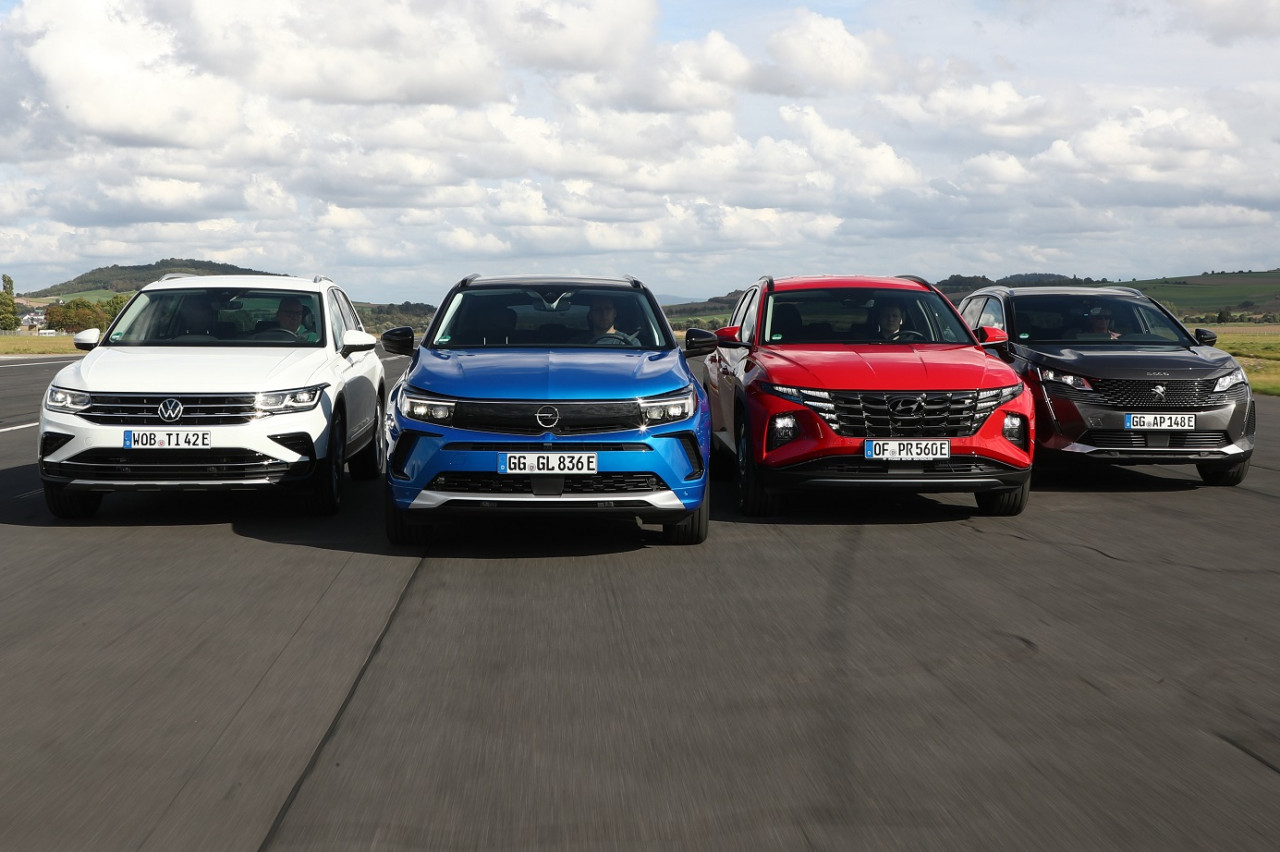
The plug-in hybrid is on the rise. Currently, one in ten newly registered cars in the Netherlands is a PHEV (plug-in hybrid electric vehicle). We told you before that the test quartet – consisting of the Hyundai Tucson, the Opel Grandland, the Peugeot 3008 and the Volkswagen Tiguan – deliver excellent performance, but are by no means petrol templars.
In Car Review issue 12/2021 we make an extensive price comparison between the four test cars. The differences between the Hyundai Tucson and the other three test cars are striking, especially due to the extra options that Hyundai has to offer for its SUV with electric drive assistance. The rates for full operational lease (business market) are also advantageous for the Tucson.
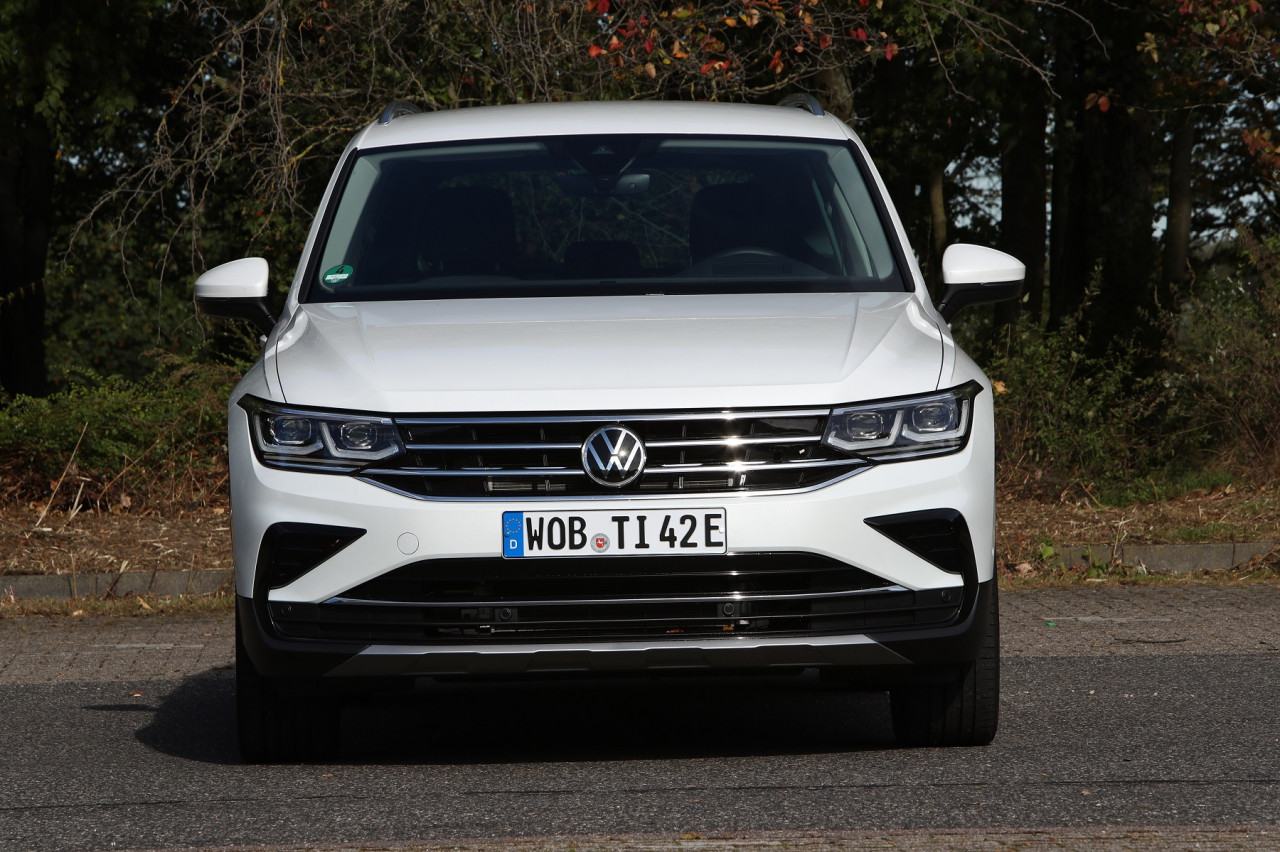
Volkswagen Tiguan: plenty of space and comfort, but …
Complete standard equipment, lots of interior space and pleasant driving comfort. Actually, the Volkswagen Tiguan has everything you can expect from a somewhat more expensive, medium-sized SUV. If it should be a Tiguan, then we have a tip for you: order it with an adaptively damped chassis. Then you experience every kilometer as business class.
A supple suspension chassis is very nice on the highway, but is generally no guarantee for pleasant driving characteristics. On this test item, the Volkswagen Tiguan 1.4 TSI eHybrid falls through the basket: the sporty driver is immediately tapped by the flashing ESP light, as a sign of incomprehension for a (fairly) high cornering speed. The electrical stability program intervenes rigorously. The Tiguan also disappoints on the braking test.
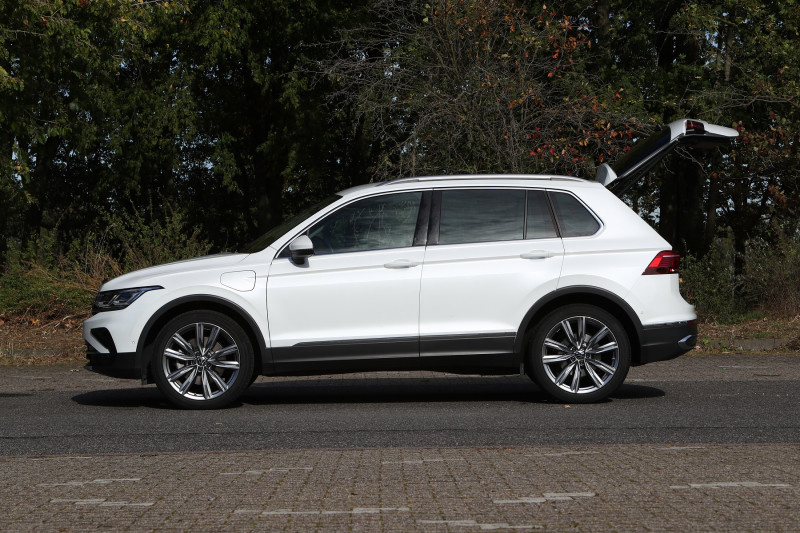
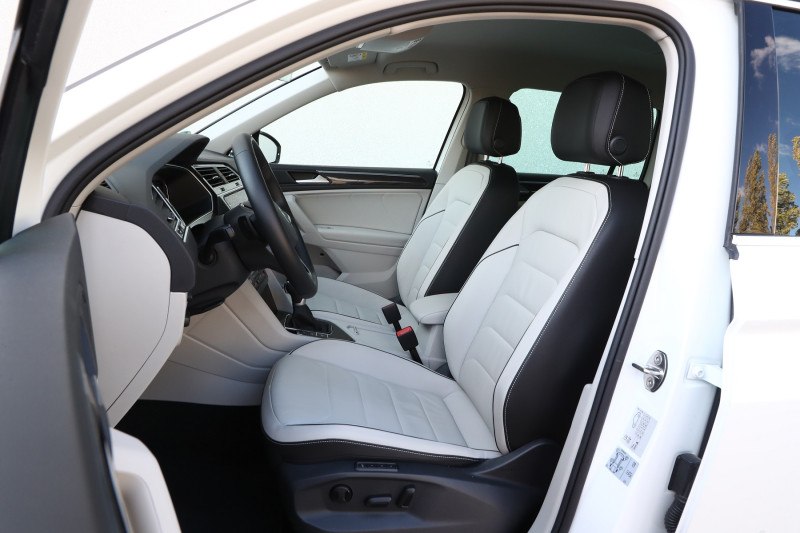
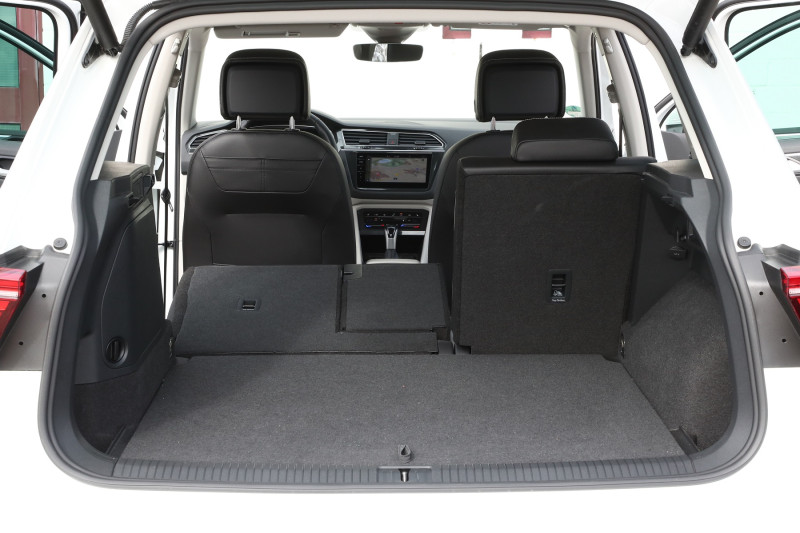
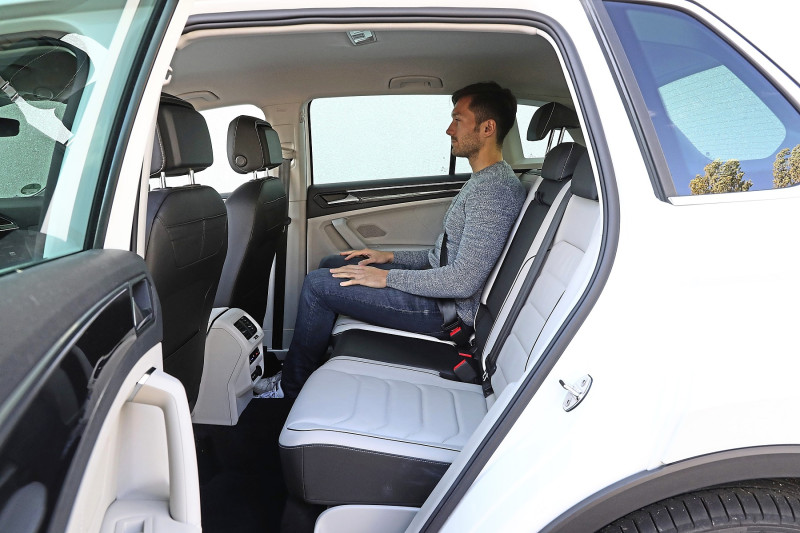
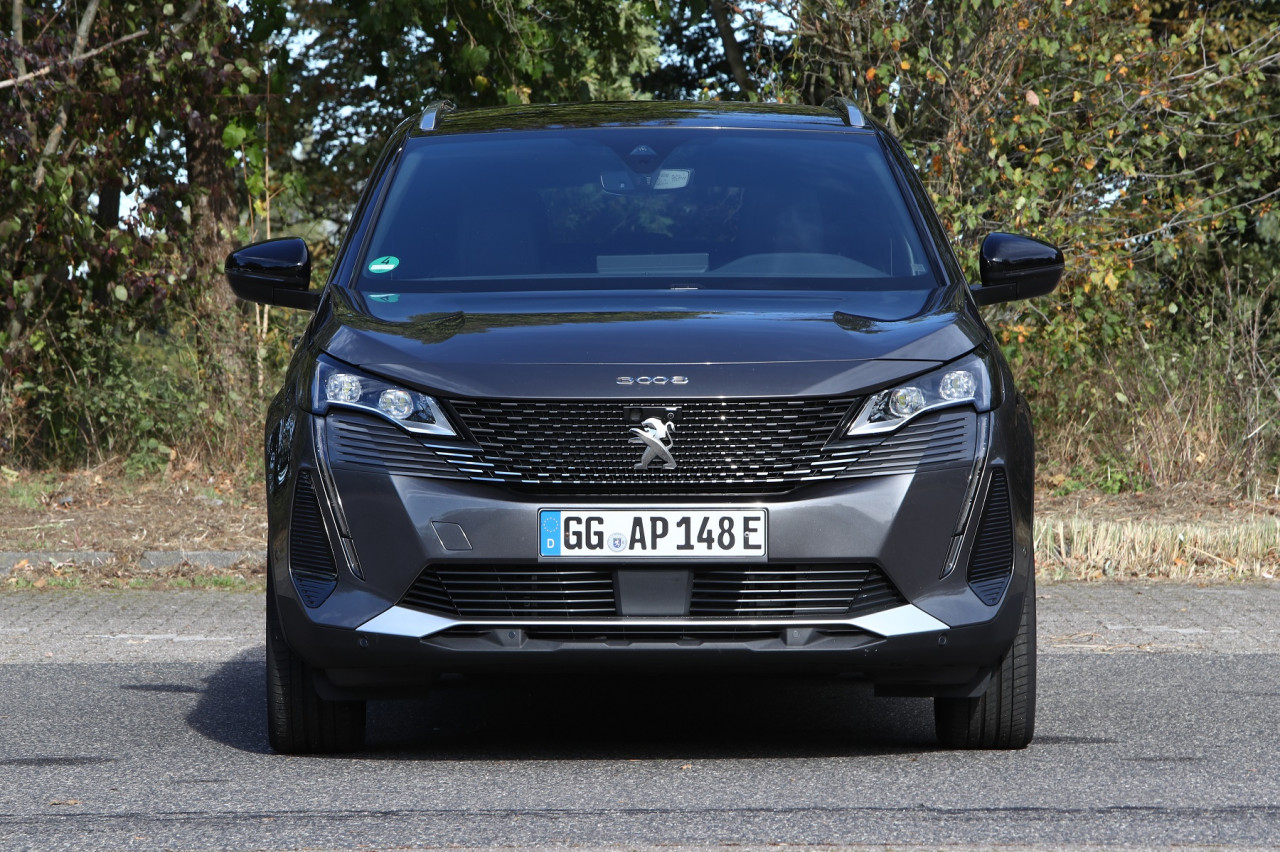
Peugeot 3008: not sure what to do with so much power
The Peugeot 3008 HYbrid4 300 has two electric motors, which, in conjunction with the 1.6-liter turbo engine, produce a combined power of 300 hp. The dynamic expectations are high not only because of the sporty GT Pack Business version of the test car. Also because the 3008-with-plug is equipped with pretty strong coil springs, you quickly get the feeling of driving a sports car.
The Peugeot 3008 HYbrid4 300 is a bit reminiscent of a hot-tempered Frenchman on Black Saturday: he never calms down. When the car is allowed to race on the test track, it records the fastest times – but to speak of a sports SUV? That’s going too far. Simply because the controls give too little feedback. It is therefore not possible to distance yourself from the other three test cars with the 3008.
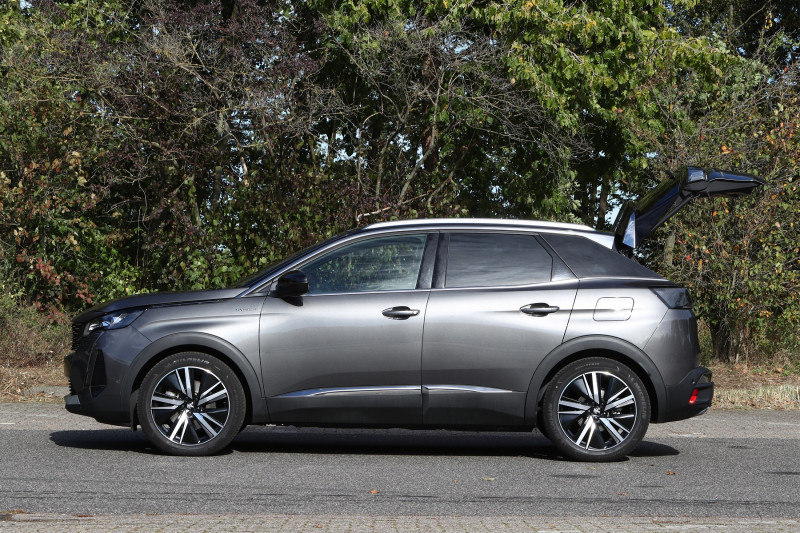
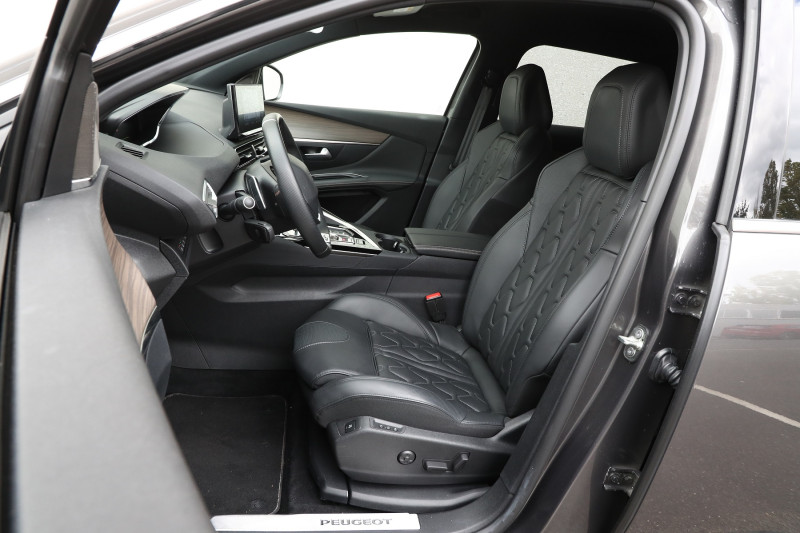
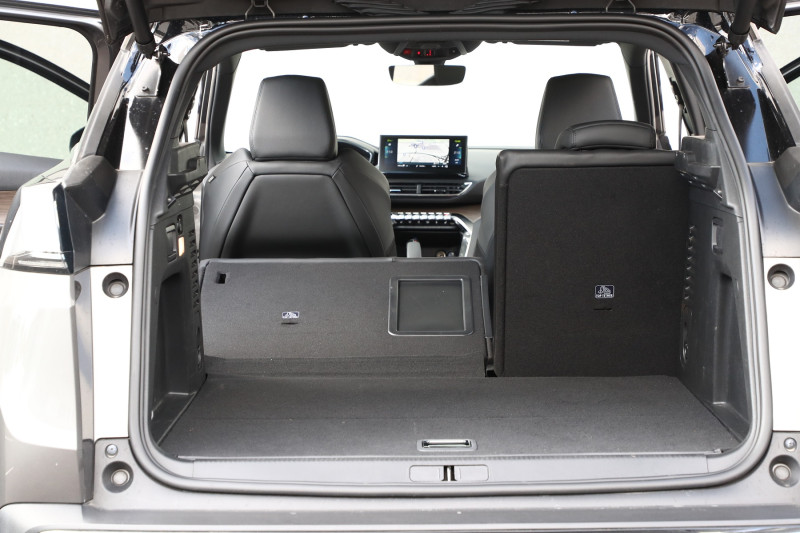
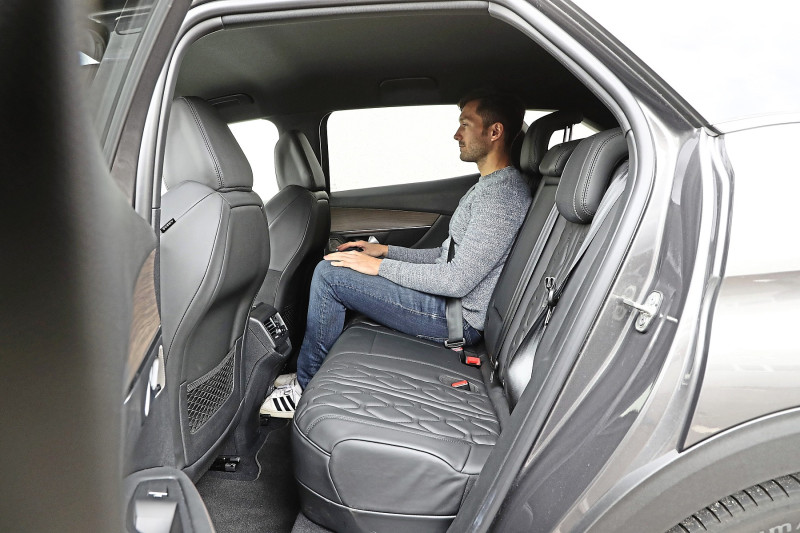
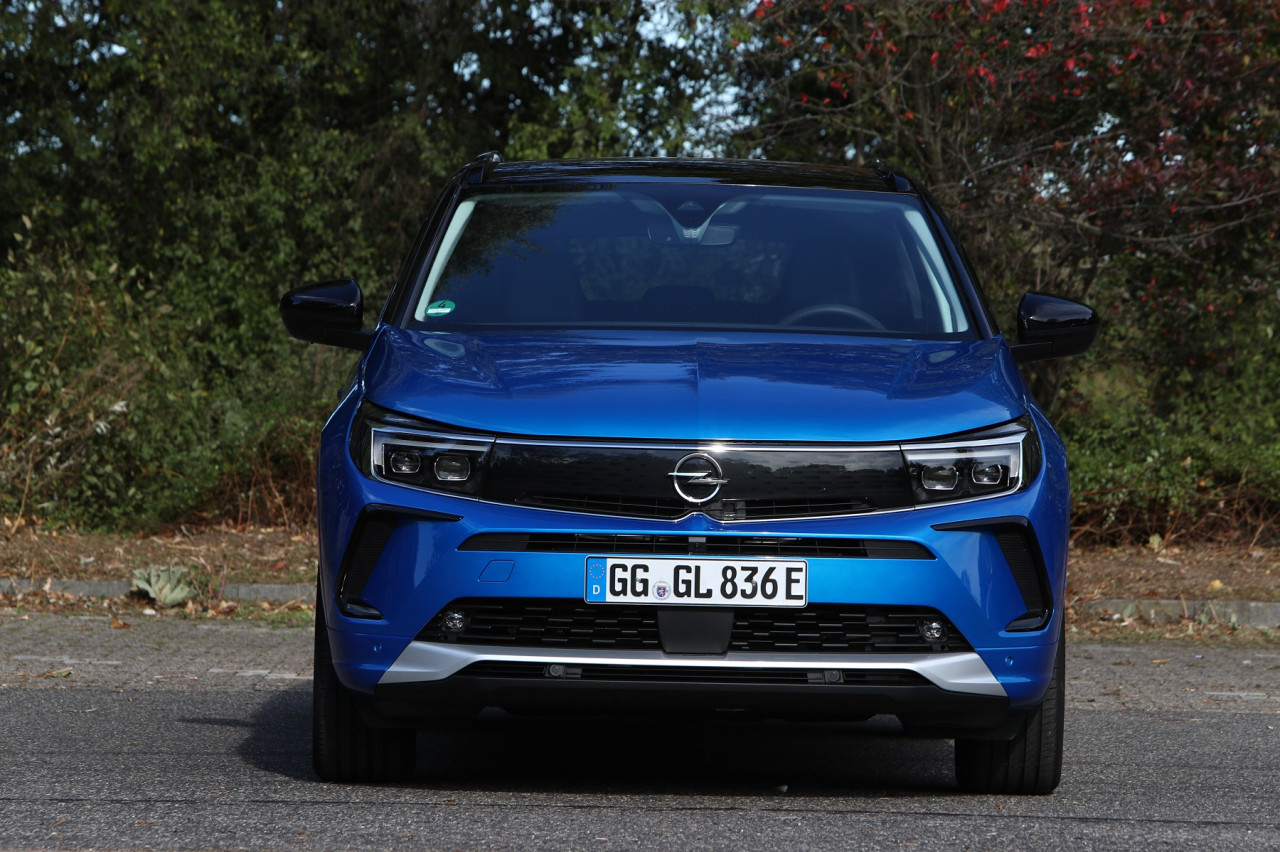
Opel Grandland: better balanced than its French cousin
The Opel Grandland Hybrid 4×4 is technically identical to the Peugeot 3008 HYbrid4, with exactly the same powertrain and exactly the same chassis hardware. But Opel is taking a different course when it comes to suspension tuning. The Grandland walks the comfortable trail, with smoother suspension. As a result, the Opel rolls more delicately on a bad road surface than its French counterpart.
On the test track, where we look for the limits of the cars, we notice once again that the Opel Grandland is better balanced than the Peugeot. Although this results in a modest loss of time on the slalom and the clocked lap, the Grandland more than makes up for that with its comfortable chassis. It is striking that the Opel performs better than the Peugeot on the braking test.
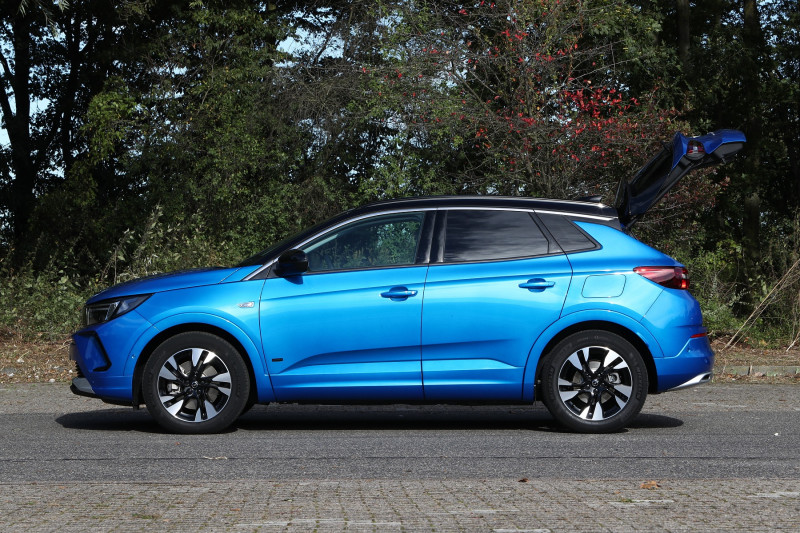
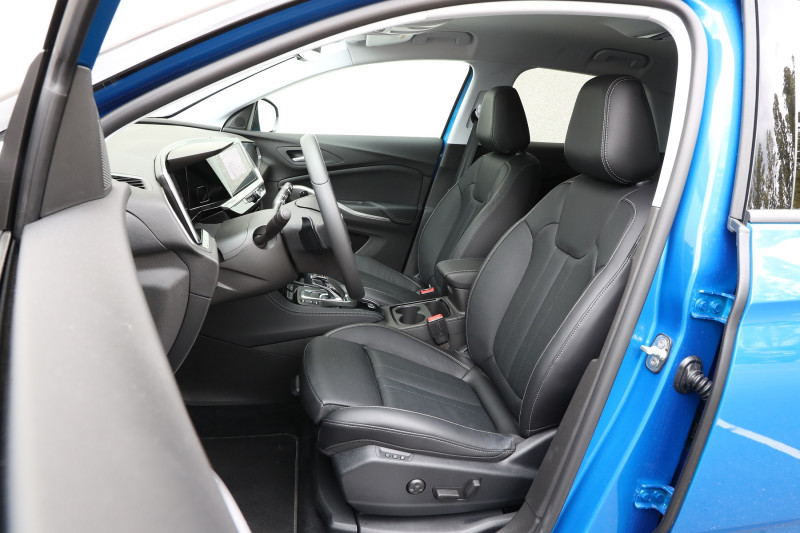
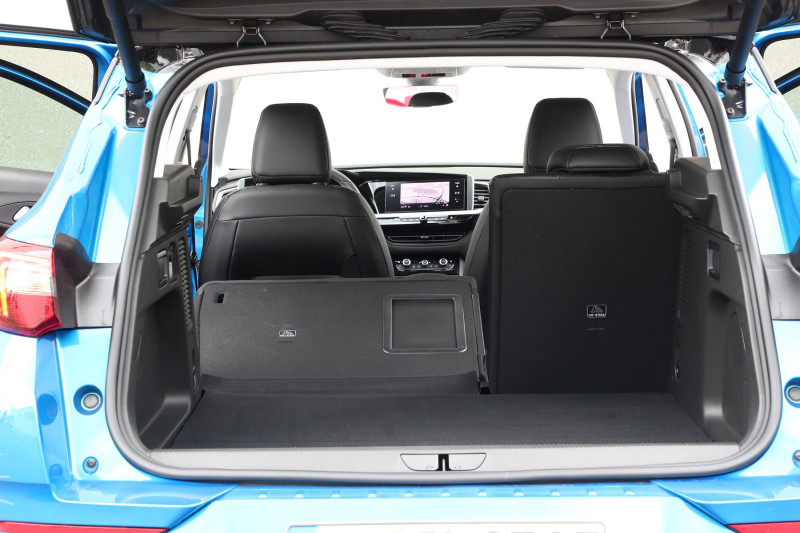
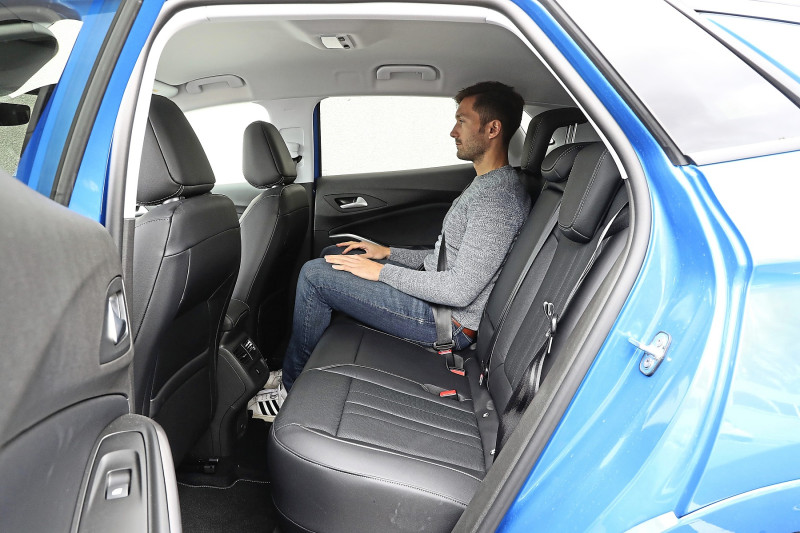
Do you want to be the first to know which cars are featured in the Auto Review comparative tests? Subscribe to our newsletter!
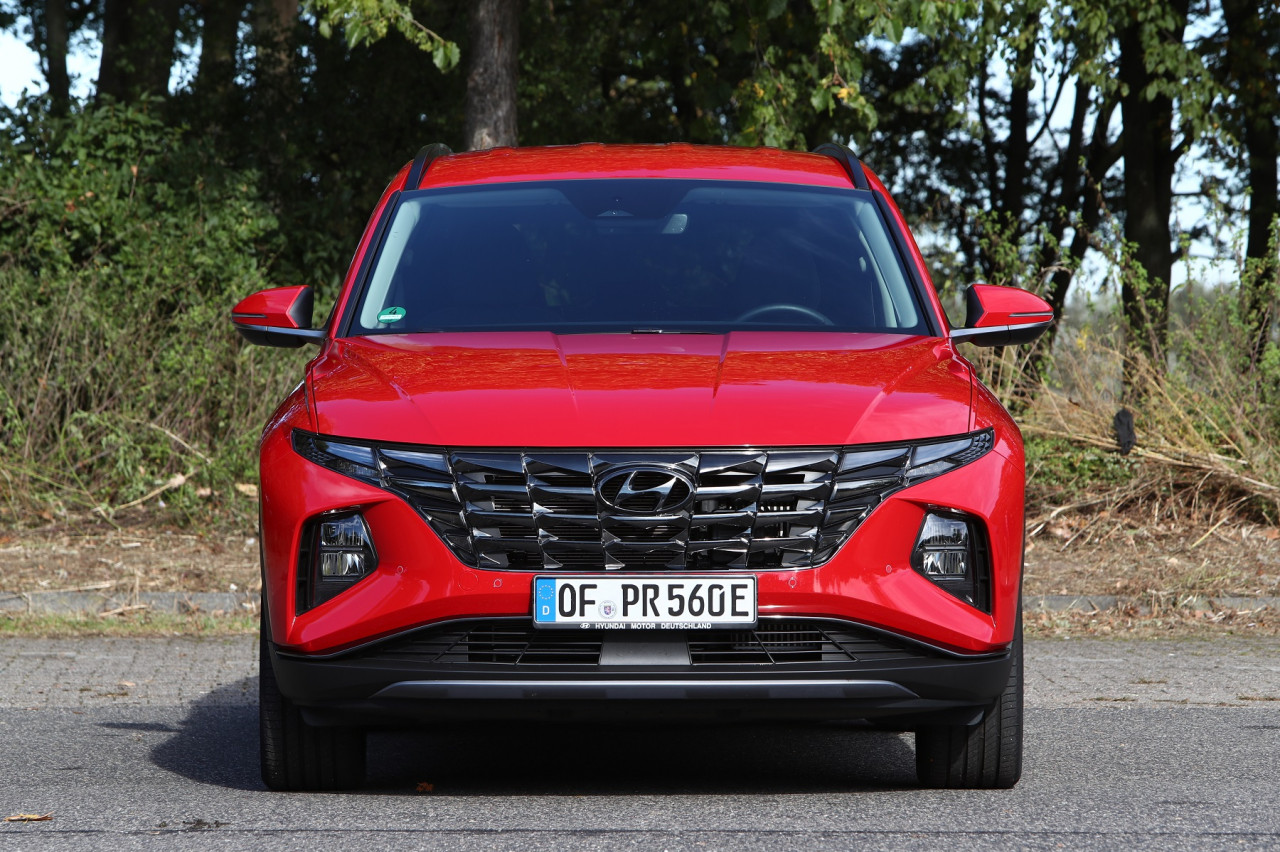
Hyundai Tucson: a strong offer on all parts
There is really not a bad word to write about the Hyundai Tucson 1.6 T-GDI PHEV. In terms of space, it is hardly inferior to the Volkswagen Tiguan, it is by far the cheapest car in this test (it just saves 10,000 euros compared to the Opel and Peugeot!), no lack of spring comfort and there is a pleasant peace on board.
Given the ingredients, you wouldn’t expect the Hyundai Tucson to score well on the test track as well. But despite its power shortage (265 hp compared to 300 hp), the South Korean plug-in SUV surprisingly manages to keep up with the Opel and the Peugeot. The steering is informative and the brakes have excellent deceleration. In short: the Tucson is comfortable and offers plenty of driving pleasure.
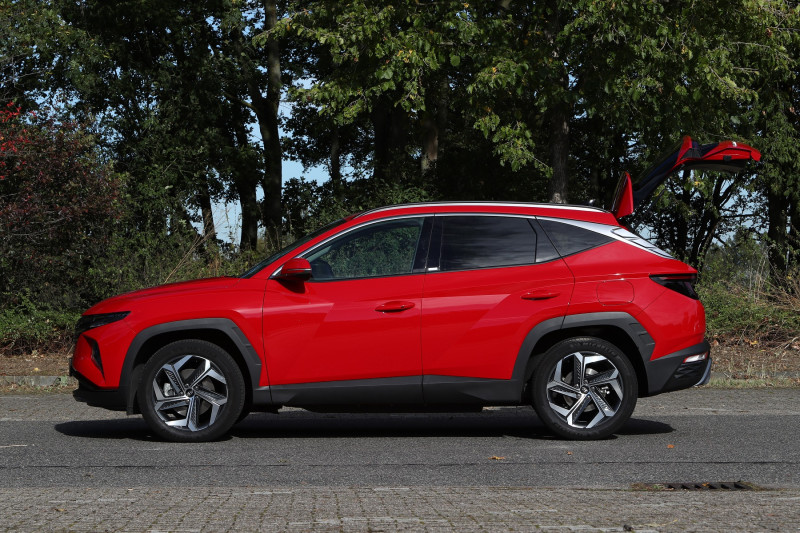
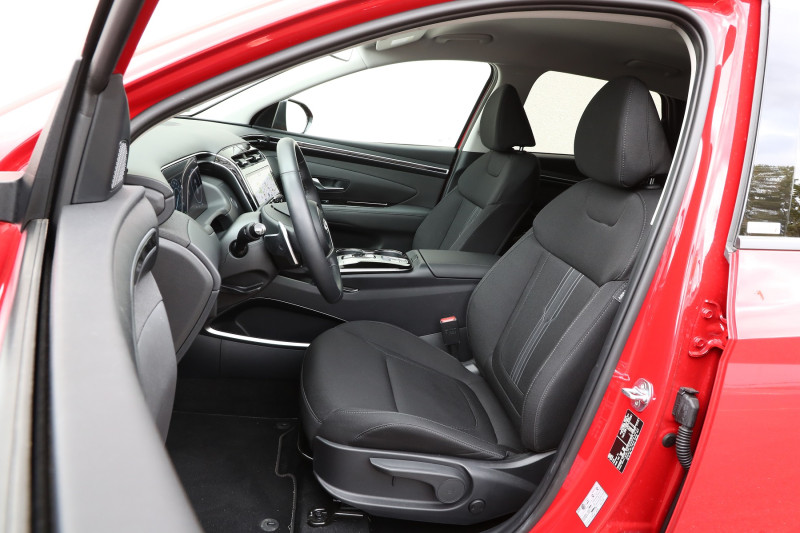
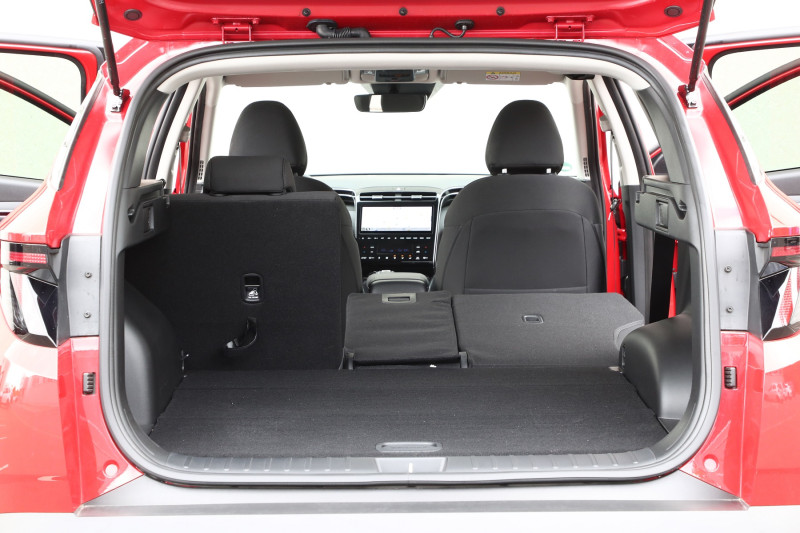
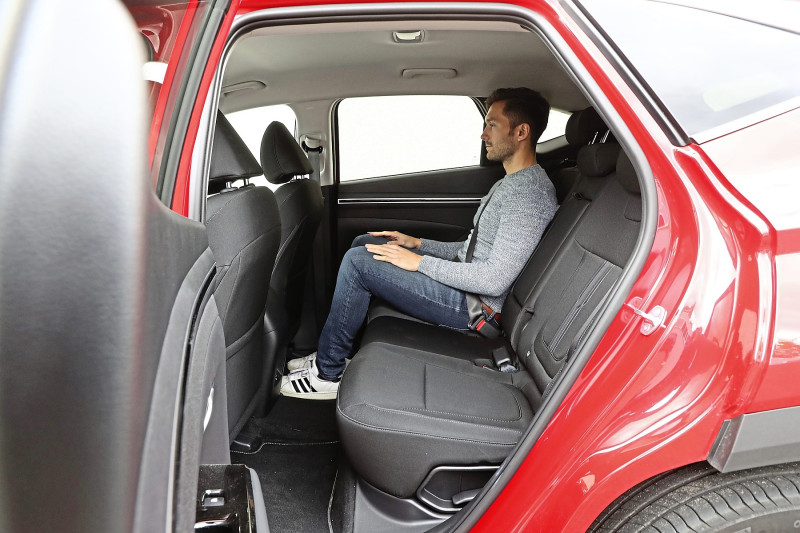
Conclusion
In this test, the Volkswagen Tiguan is beaten in the area where the German brand normally always excels: the combination of good features. Not that the Tiguan underperforms in this test, but the Hyundai Tucson simply knows how to raise the bar. In fact, looking at comfort and driving characteristics, the Opel Grandland also offers a better overall package than the Volkswagen Tiguan. Work to be done in Wolfsburg!.